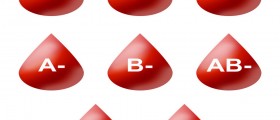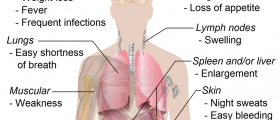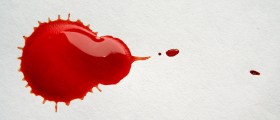
A Brief Introduction
Itis useless to say that blood plays a number of very important roles both in humans and animals. Amongst its most important functions would most definitely be carrying of oxygen in and out of the heart.
Butblood isn't only used for oxygen transport. It is also used to transport waste from the body to the excretory system, amongst other things.
Human blood consists of of plasma (55%) and three types of cells (45%). Red, white and platelets. Plasma is, for its most part (about 90%) made up of water and various salts.
Apart from the mentioned, human blood also contains a number of a certain type of proteins. These proteins are called antigens. And it is the presence of these antigens that is the deciding factor of which blood type a person has. These blood types are commonly known as "blood groups", and this article takes a closer look at their different properties.
So what are bloodgroups?
Bloodgroups were first discovered by Karl Landsteiner (in 1901). Upon discovery, he had classified human blood into four groups. The four relevant types of blood a person may have are: A, B, AB and O.
This classification was based upon the presence of the above mentioned antigen in human blood. For instance, if the person's blood contained an antigen A, the particular person's group was was A, and so forth.
A person's blood group is normally determined at birth.
Next off, it should be noted that there is another factor which helps close pin down a particular person's blood group. This factor is called Rhesus (Rh). The presence of this factor is one that determines whether a person's blood group is positive or negative.
So accordingly, if a person's blood contains antigen B, as well as Rhesus factor D, his or her blood type shall be B+. Similarly, if the same person's blood lacked but the Rhesus factor D, the blood group would be B-.
And according to the above stated, human blood may be categorized into eight groups, thus: A+, A-, B+, B-, AB+, AB-, O+, and O-.
Knowing one's blood group is an important bit of medical information, since no transfusion could be carried out otherwise. Nextly, the difference between the Rh factors of a baby's parents blood types could create a number of threatening conditions for the child. Luckily, this little issue could be overcome by means of use of modern medication.
So what is the most common blood type?
Themost common blood types are the Rhesus factor positive ones. Namely, nearly 85% of the world's population is Rhesus factor positive. And inside that group, it has been statistically proven that the most frequent group would be O+ (with about 35%-40% of the world's population sharing it).
This blood group is also known as the universal donor, because a person who's got it may donate blood to people with any other blood types.
The second in line when it comes to popularity would be blood group A+.
















Your thoughts on this
Loading...